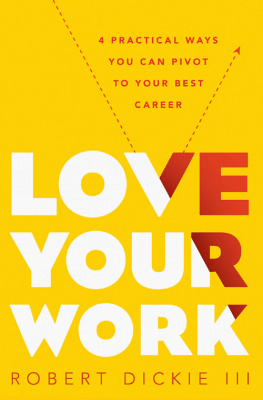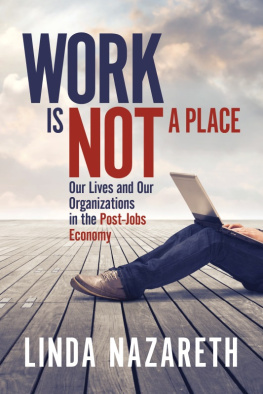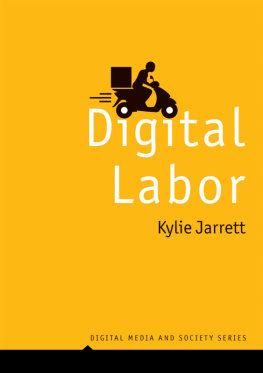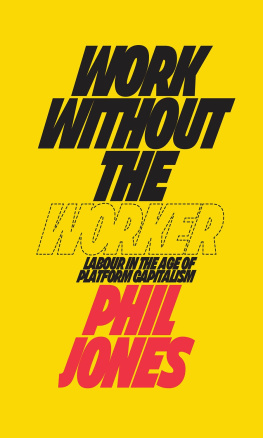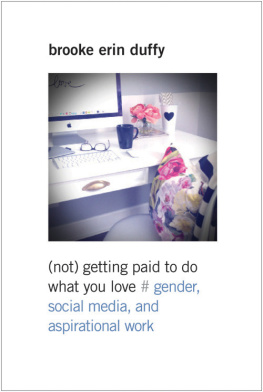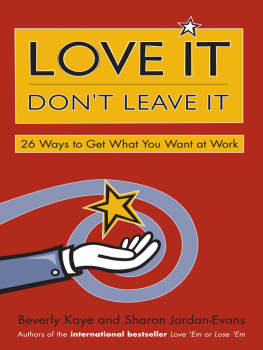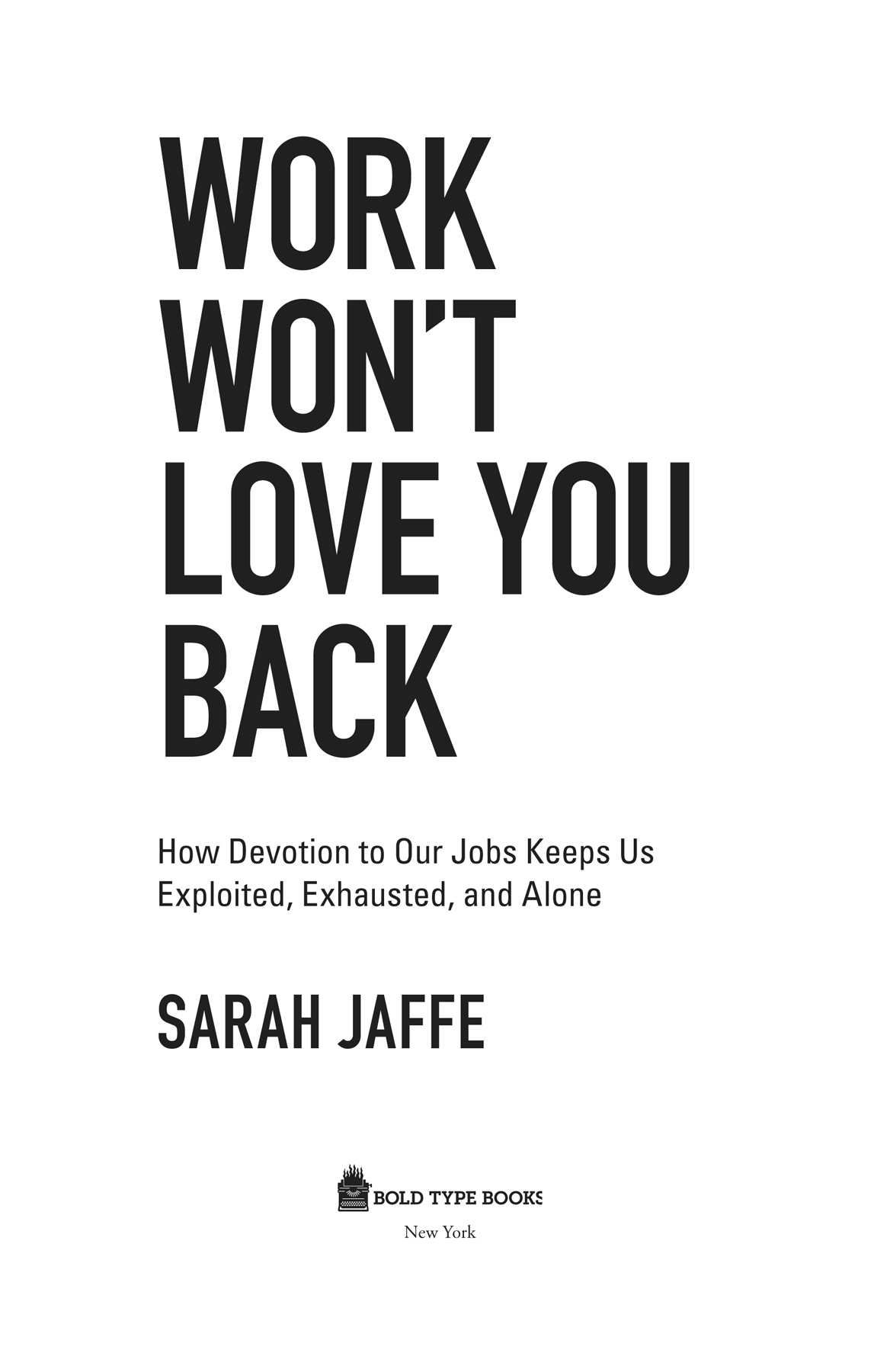Copyright 2021 by Sarah Jaffe
Cover design by Pete Garceau
Cover copyright 2021 Hachette Book Group, Inc.
Hachette Book Group supports the right to free expression and the value of copyright. The purpose of copyright is to encourage writers and artists to produce the creative works that enrich our culture.
The scanning, uploading, and distribution of this book without permission is a theft of the authors intellectual property. If you would like permission to use material from the book (other than for review purposes), please contact permissions@hbgusa.com. Thank you for your support of the authors rights.
Bold Type Books
116 East 16th Street, 8th Floor New York, NY 10003
www.boldtypebooks.org
@BoldTypeBooks
First Edition: January 2021
Published by Bold Type Books, an imprint of Perseus Books, LLC, a subsidiary of Hachette Book Group, Inc. Bold Type Books is a co-publishing venture of the Type Media Center and Perseus Books.
The Hachette Speakers Bureau provides a wide range of authors for speaking events. To find out more, go to www.hachettespeakersbureau.com or call (866) 376-6591.
The publisher is not responsible for websites (or their content) that are not owned by the publisher.
Library of Congress Cataloging-in-Publication Data
Names: Jaffe, Sarah, 1980author.
Title: Work wont love you back : how devotion to our jobs keeps us exploited, exhausted, and alone / Sarah Jaffe.
Description: First edition. | New York, NY : Bold Type Books, [2021]| Includes bibliographical references and index.
Identifiers: LCCN 2020031919 | ISBN 9781568589398 (hardcover) | ISBN 9781568589381 (ebook)
Subjects: LCSH: Quality of work-life. | Job satisfaction.| Work-life balance.| WorkPsychological aspects. | Labor.
Classification: LCC HD6955 .J34 2021 | DDC 331.2dc23
LC record available at https://lccn.loc.gov/2020031919
ISBNs: 978-1-56858-939-8 (hardcover), 978-1-56858-938-1 (e-book)
E3-20201217-JV-NF-ORI
CONTENTS
For Melissa and Peter
Explore book giveaways, sneak peeks, deals, and more.
Tap here to learn more.
I LOVE MY WORK.
Technically, I dont have a job. I havent had one in a few years, since I left the last magazine that hired me full-time for a one-year stint as a staff writer. Since then, I have supported myself as a freelance journalist, to varying degrees of success. I travel, I report, I give the occasional talk, and mostly, I write. I meet fascinating people and get to share their stories with the world, and I actually, at least at the moment, make a living at it.
I also make about $15,000 less a year than the average woman my age with my level of education.
I am the poster child for work in todays economy. Im flexible, working on the fly from a laptop in coffee shops around the country and occasionally the world. I dont have an employer that pays for my health insurance, and forget about retirement benefits. Vacation? Whats that? I have none of the things that used to signify a stable adult lifeno family, no property, just me and a dog. (On the upside, I dont have a boss, either.)
This book isnt about me, though. It is about the millions of people around the world who share some or even most of my working conditions, even if theyve managed to snag a good old-fashioned full-time job. So many features of what people used to consider employment security are gone, melted into air. Instead, as a thousand articles and nearly as many books have told us over and over, were all exhausted, burned out, overworked, underpaid, and have no work-life balance (or just no life).
At the same time, weve been told that work itself is supposed to bring us fulfillment, pleasure, meaning, even joy. Were supposed to work for the love of it, and how dare we ask questions about the way our work is making other people rich while we struggle to pay rent and barely see our friends.
Like so many things about late capitalism, the admonishment of a thousand inspirational social media posts to do what you love and youll never work a day in your life has become folk wisdom, its truthiness presumably everlastingstretching back to our caveperson ancestors, who I suppose really enjoyed all that mammoth hunting or whatever. Instead of never working, the reality is that we work longer hours than ever, and were expected to be available even when technically off the clock. All this creates stress, anxiety, and loneliness. The labor of love, in short, is a con.
But the expectation that we will love our jobs isnt actually all that old. Once upon a time, it was assumed, to put it bluntly, that work sucked, and that people would avoid it if at all humanly possible. From the feudal system until about thirty or forty years ago, the ruling class tended to live off its wealth. The ancient Greeks had slaves and banausoi a lower class of workers, including manual laborers, skilled artisans, and tradespeopleto do the work so that the upper classes could enjoy their leisure time and participate in community life. If youve ever read a Jane Austen novel and wondered how those people who dont seem to do much of anything (except hem and haw about whom to marry) got by, you get the general picture. Work, to the wealthy, was for someone else to do.
Since the 1970s and 1980s, there has been a shift. The ownership class these days does tend to work, and indeed, to make a fetish of its long hours. But the real change has come in the lives of those of us who dont make millions. Its become especially important that we believe that the work itself is something to love. If we recalled why we work in the first placeto pay the billswe might wonder why were working so much for so little.
People have long considered the question of whether work should be enjoyable. In the 1800s, socialist and artisan William Morris wrote of the three hopes that might make work worth doinghope of rest, hope of product, hope of pleasure in the work itself. Morris acknowledged that the idea of pleasurable work might seem strange to most of his readers, but argued that the inequality that capitalism had wrought meant that some who did no work lived off the labor of others, who were condemned by this system to useless toil. Modern industry had taken away what little independence and power craftspeople might have had and reduced them to interchangeable, robotic wage laborers. No one cared whether the proletariat liked its workit wasnt given a choice in the matter.
But those proletarians, too, usually tried their hardest to escape work. The labor movements earliest demands were usually for less workshorter working hours, down to twelve, then eleven, then ten, then eight, plus days off. The strike, the workers best weapon, is, after all, a refusal of work, and for a while they wielded it effectively, winning some concessions on the length of the working day and week as well as on wages. Capitalists would give up a little here and there to keep the profits flowing, but they also sought new strategies to keep workers on track beyond simple brute force.
The carrot that was eventually offered to the industrial working class was what is often called the Fordist compromise, named, of course, after Henry Fords Ford Motor Company. Workers would give up a large chunk of their time, but a manageable onegenerally five eight-hour days of work a weekto the boss and in return they would get a decent paycheck, health care (either provided by the company, in the United States, or, in other countries, provided by the state), and maybe some paid holidays and a pension to retire on. It was Morriss hope of restand, if not actually the hope of controlling ones product, at least some financial remunerationthat provided workers with some ability to support themselves, and maybe a family, and to enjoy themselves in their time off the shop floor.




